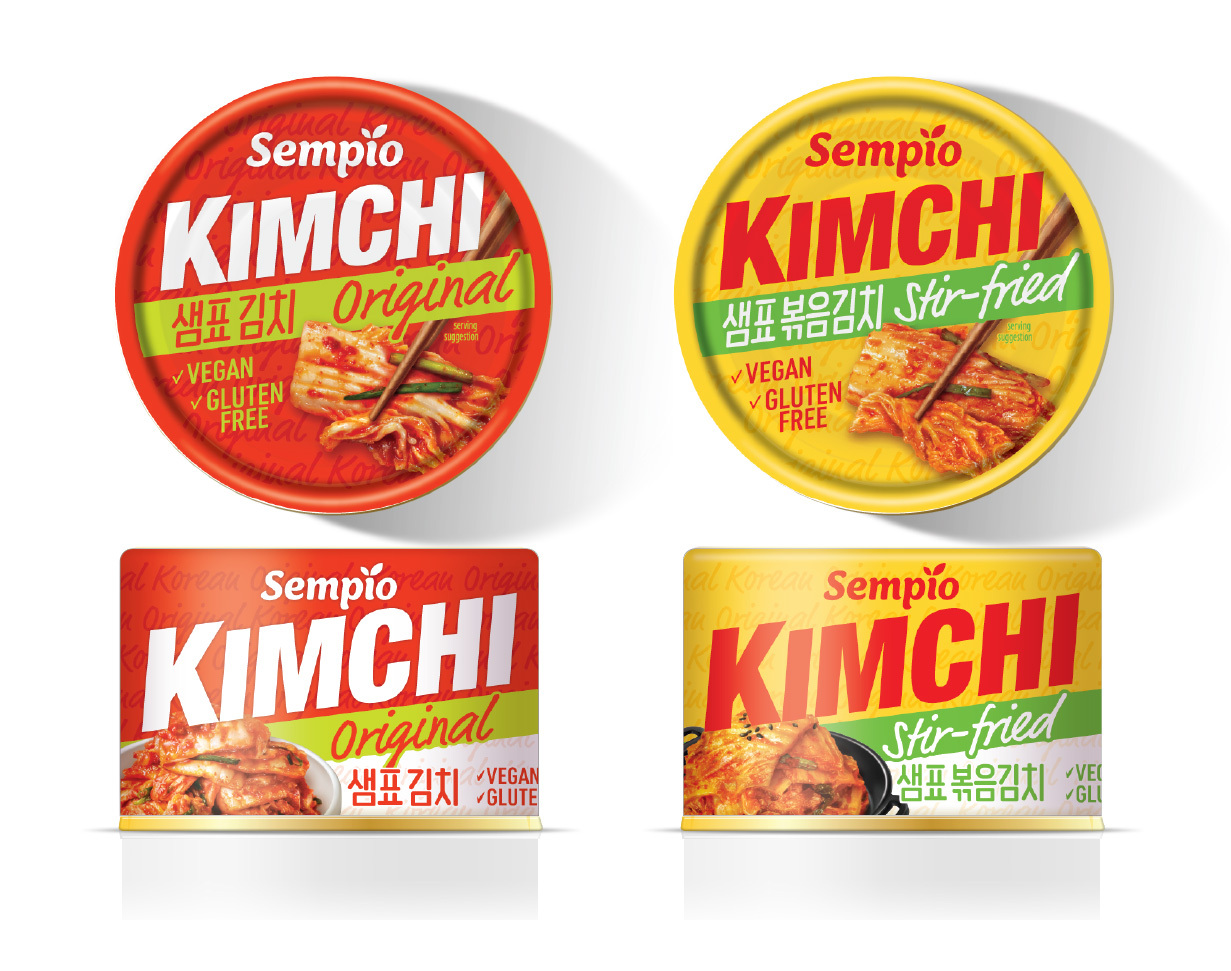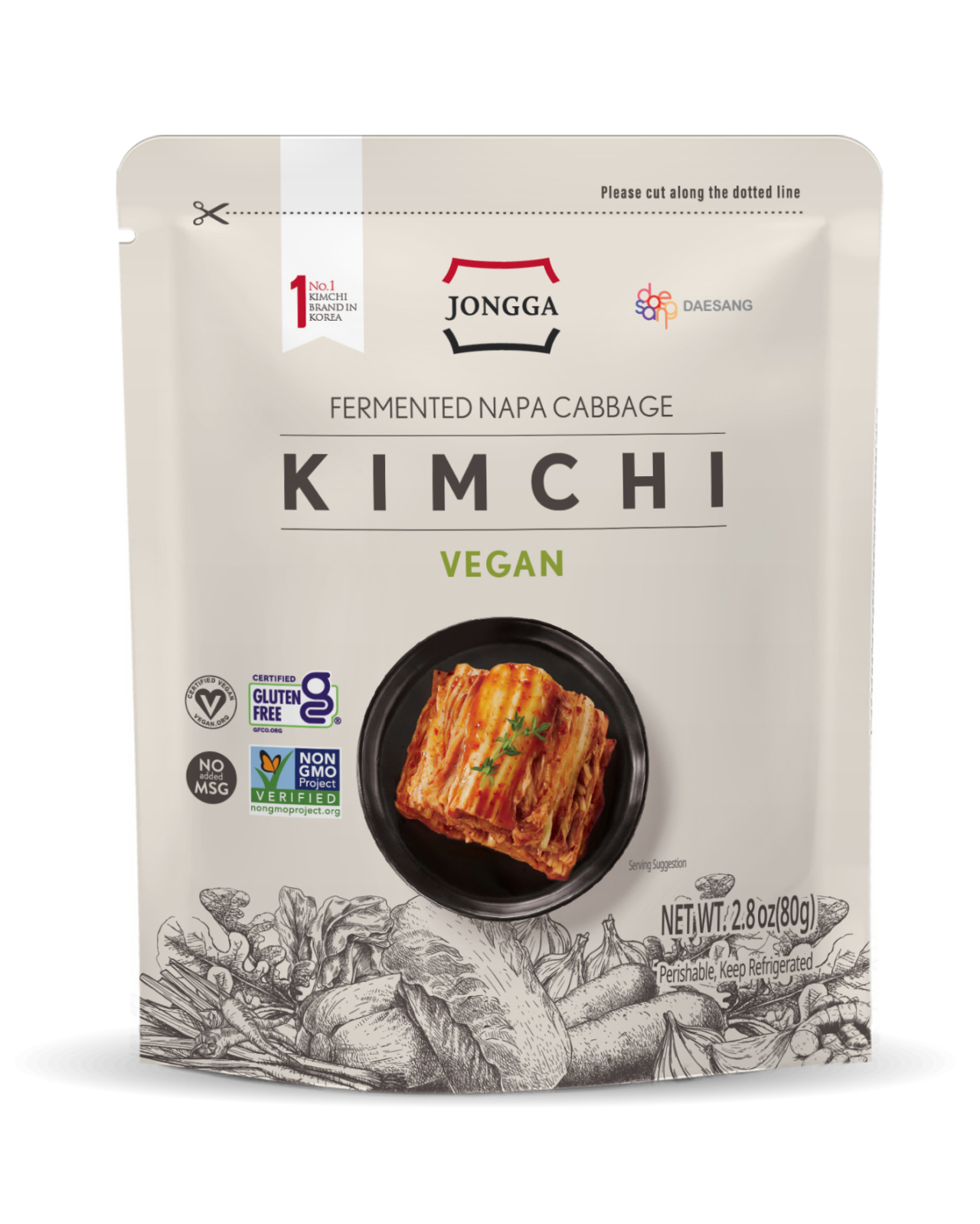Market Now
Kimchi with new packaging method on way to captivate world
 |
Image of Sempio’s canned kimchi (Sempio) |
Forget about concerns of kimchi keeping its freshness and leaking its “unique smell” when shipped overseas. Korean companies are seeking ways to expand their kimchi exports by adopting new packaging methods, increasing overseas production and obtaining scientific proof that the traditional side dish is beneficial to one’s health.
The state-run Korea Agro-Fisheries & Food Trade Corp. announced Thursday it has launched a new kimchi product that can improve bowel movements and plans to export it to Japan starting this year.
The kimchi, co-developed with the government-funded World Institute of Kimchi, contains fructooligosaccharides, a natural health-promoting agent that comes from plants, according to the agency.
“Thanks to the scientific proof obtained by aT’s Japanese branch, Korean kimchi was able to be recognized by Japan as ‘functional food’ for the first time,” the agency official said, defining functional food as one that provides health benefits.
It was ironic that Japanese kimchi has been introduced in the local market as functional food while Korean kimchi failed to be recognized as such, the official added.
“We welcome the opportunity that will pave the way to accelerate kimchi exports to Japan,” said Ki No-sun, director of the food exports department at aT, in a statement.
Local food maker Sempio recently developed canned kimchi, targeting the US and European market.
The two kinds of kimchi -- original kimchi and cooked kimchi -- are packed in small cans for consumers to enjoy, the company said.
“Instead of anchovy sauce that gives out a fermented seafood smell, we use plant-based sauce that reduces the strong smell, for vegans and general public,” a Sempio official said.
Sempio also plans to expand its footing overseas by launching a kimchi sauce kit that contains garlic, onion, red pepper powder and other ingredients.
The sauce kit helps international consumers to make kimchi under 10 minutes, the company said, adding that videos of people making cucumber kimchi on TikTok has been a big hit overseas.
 |
Image of Jongga’s vegan kimchi (Daesang) |
Food giant Daesang group also announced it will produce vegan kimchi, beet and pickle kimchi and white kimchi at its newly built factory in Los Angeles.
White kimchi doesn’t use red pepper flakes, and tastes mild and less spicy. In case of vegan kimchi, it excludes oysters and other seafood sauce in the fermenting process, the official said.
The demand for kimchi started to spike in the US when PBS aired a Korean food documentary called “Kimchi Chronicles” back in 2011, the company said. In 2013, when Michelle Obama tweeted she made kimchi with cabbage grown in the White House garden, the public showed great interest in kimchi as well, it added.
According to data from Korea Customs Service, kimchi exports soared more than twofold to $159.9 million in 2021 compared to a year earlier. The number of export countries increased from 61 in 2011 to 89 in 2021.
By Byun Hye-jin (hyejin2@heraldcorp.com)








